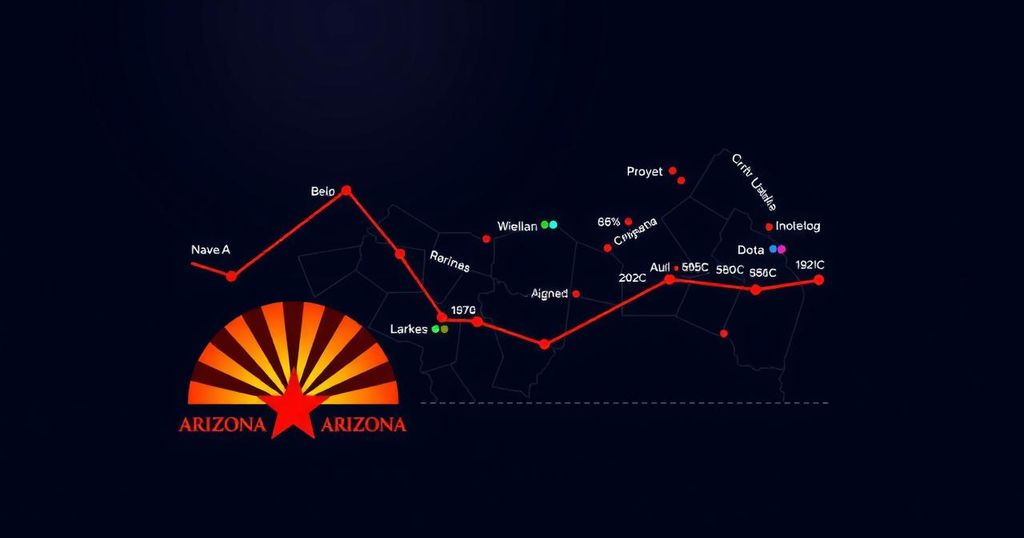Republican Gains in Arizona: Implications for Governance and Policy

Arizona’s recent elections indicate a substantial Republican consolidation of power, with Trump likely reclaiming the state and Democrat Ruben Gallego positioned to become its first Hispanic senator. Republicans have triumphed in critical local elections, underscoring a rightward shift in state politics. This trend, while leading to potential gridlocks in legislative processes, aligns with voter priorities on public safety and indicates a challenging political landscape ahead.
The recent election results in Arizona indicate a significant consolidation of Republican power, reminiscent of past political trends. Although final tallies are pending, Donald Trump appears on track to secure Arizona, a state he narrowly lost in 2020, while Democratic congressman Ruben Gallego is favorably positioned to become the first Hispanic U.S. senator from Arizona. Republicans have achieved robust outcomes down the ballot, claiming influential positions which reflects a growing GOP presence. The landscape shift brings implications for governance, with the party gaining ground in both federal and state arenas. Trump’s resurgence to political prominence has redefined Republican strategies, as evidenced in the upcoming Congress where they are poised to leverage their majority. The anticipated control of not only the White House but both chambers of Congress presents an avenue for Trump to pursue his agenda with relative autonomy. As for state dynamics, a partisan split in Arizona’s legislature seems unlikely; rather, Republicans are set to enhance their foothold, potentially leading to a legislative deadlock given the historical partisan divides. Meanwhile, the judiciary in Arizona appears to maintain stability, with voters supporting justices who uphold critical legal doctrines around contentious issues like abortion. Moreover, Arizonans exhibited a strong preference for public safety initiatives, endorsing several propositions aimed at enhancing first responder benefits and reducing penalties for child trafficking. However, ambitious electoral reforms such as the establishment of an open primary system have not resonated with the electorate this election cycle. Policymaking in Arizona is expected to remain contentious, possibly pivoting towards more conservative and rigorous immigration policies. Such electoral outcomes are not merely numbers but indicative of evolving sentiments amongst Arizona voters and beyond.
The political landscape of Arizona has shifted markedly in recent elections, with the Republican Party gaining considerable strength in both state and federal arenas. This change is significant for the understanding of national political trends as Arizona functions as a key indicator of broader electoral sentiments. The possibility of a Republican trifecta at the national level, with Trump at the helm, presents both opportunities and challenges for governance, particularly regarding policy initiatives that could impact various sectors, including immigration and public safety.
In summary, the recent elections have solidified Republican control in Arizona, bringing Trump back into power while potentially establishing Gallego as a historic Democratic senator. This shift denotes a shift in priorities, with Republicans preparing to advance their policies amid a backdrop of divided legislative authority. Moreover, public safety measures have garnered support, contrasting with a failure to reform electoral processes. The ensuing political environment appears poised for contention and transformative governance in Arizona moving forward.
Original Source: www.azcentral.com








